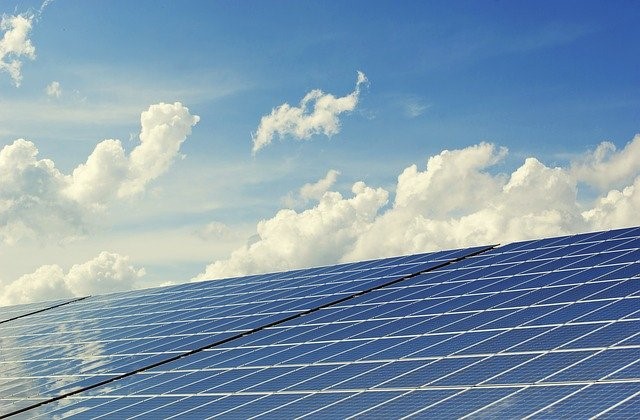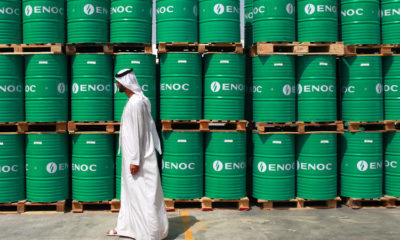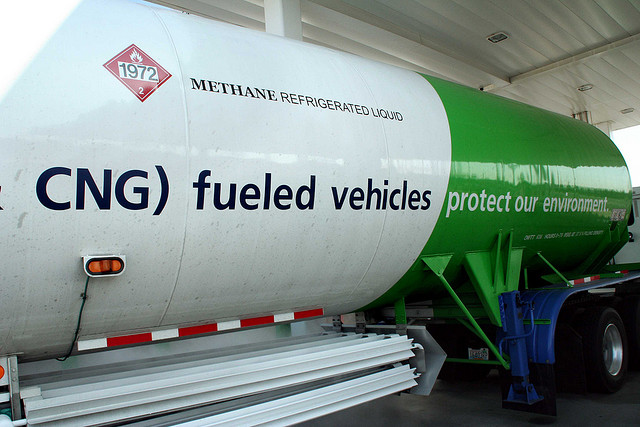The Federal Government declared on Thursday that the conversion of petrol and diesel-powered commercial vehicles to run on Compressed Natural Gas (CNG) will be free of charge.
The announcement came after the government signed agreements with several companies specializing in the conversion of petrol and diesel vehicles to CNG.
Michael Oluwagbemi, the Programme Director/Chief Executive of the Presidential Compressed Natural Gas Initiative (P-CNGI), disclosed the details of the program to journalists in Abuja.
“Today we’ve just signed with five partners here in the FCT (Federal Capital Territory) participating in the Conversion Incentive Programme,” Oluwagbemi stated.
“The program is tackling the barrier to Nigerian commercial transport operators to convert from PMS (petrol) to gas. Most of them have said that the cost of conversion is expensive, and so what we are doing here today is basically to respond to that concern.”
Benefits for Commercial Transport Operators
The initiative primarily targets commercial transporters under various unions, including the Road Transport Employers Association of Nigeria (RTEAN), National Union of Road Transport Workers (NURTW), and the Nigerian Association of Road Transport Owners (NARTO).
According to Oluwagbemi, these unionized operators will receive conversion kits and installation services completely free of charge.
“This is going to be done through certified conversion workshops that we are beginning to identify. We’ve identified about 123 of them, and five are here with us today in Abuja. As we expand across the country, we will activate more of them,” he said.
Ride Share Operators Included
In addition to unionized commercial transporters, ride share operators such as those working with Uber, Bolt, Lag-Ride, and Move will also benefit from the program. These operators will receive a 50% discount on the conversion equipment and free installation.
Furthermore, the arrangement allows them to pay for the remaining costs in installments, eliminating the need for upfront payments.
“We hope to add more ride share operators soon. Lag-Ride has already signed up, and we are going to send the agreement next week,” Oluwagbemi added.
Impact on Transportation Costs
Through this program, the government aims to reduce transportation costs for Nigerians. Oluwagbemi highlighted that over 20,000 kits will be available in the next three months, distributed across 25 states with existing CNG capacity.
This initiative is part of a broader palliative program funded by the National Assembly, which has allocated additional resources for the acquisition of more kits later this year.
“The agreement we signed today ensures that the savings from the conversion will be passed on to ordinary Nigerians. We will begin to see some impact in terms of reduced transportation costs,” Oluwagbemi noted.
Monitoring and Enforcement
To ensure the success of the program, the government has implemented a robust monitoring mechanism.
The Nigerian gas vehicle monitoring system will oversee the conversion process and ensure compliance with agreed pricing reductions.
“We have a very strong monitoring mechanism around conversion and the enforcement of reduced pricing for Nigerians. The framework of the agreement includes significant pass-on of savings to ensure the purpose of the palliative is achieved,” Oluwagbemi emphasized.

 Billionaire Watch3 weeks ago
Billionaire Watch3 weeks ago


 Startups4 weeks ago
Startups4 weeks ago


 News4 weeks ago
News4 weeks ago


 News4 weeks ago
News4 weeks ago


 Bitcoin4 weeks ago
Bitcoin4 weeks ago
 Naira4 weeks ago
Naira4 weeks ago
 Forex3 weeks ago
Forex3 weeks ago
 Treasury Bills4 weeks ago
Treasury Bills4 weeks ago

















